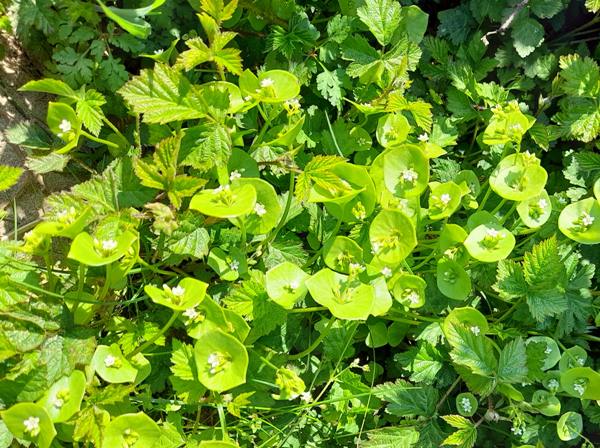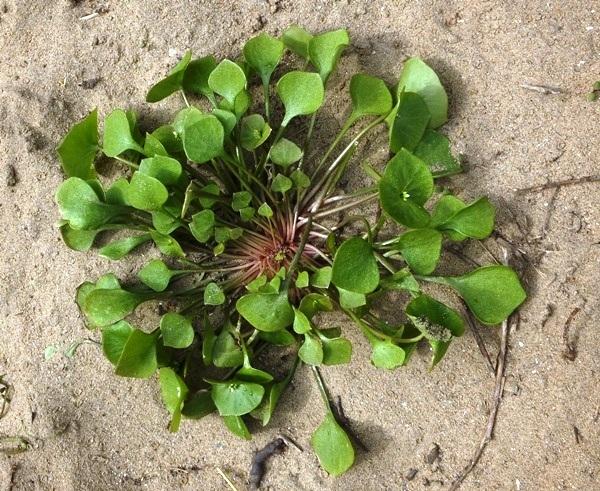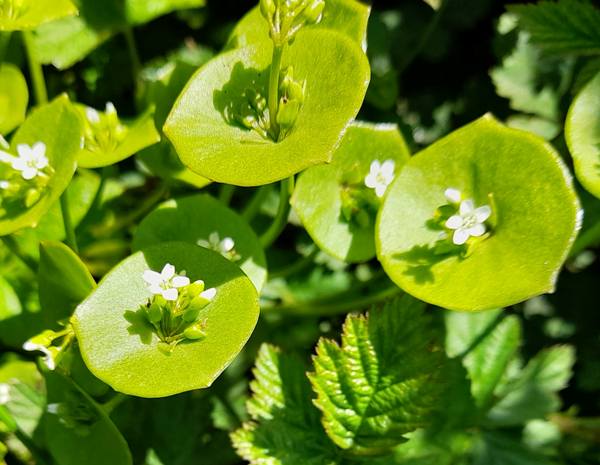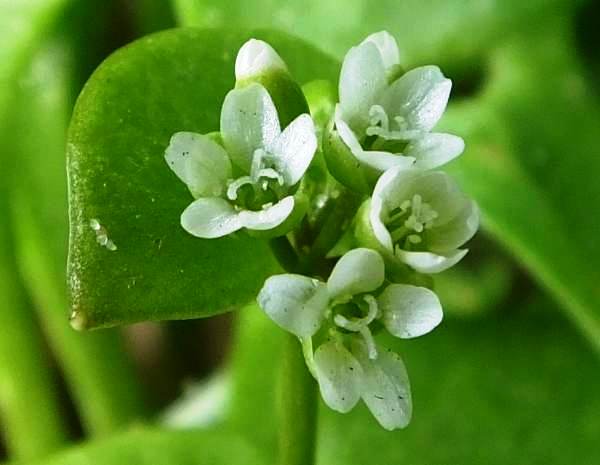Claytonia perfoliata - Winter Purslane or Spring Beauty
Phylum: Magnoliophyta - Class: Equisetopsida - Order: Caryophyllales - Family: Montiaceae

Winter Purslane or Spring Beauty beside a sandy coastal track
Description
Spring Beauty is a succulent hairless annual. Its star-like white flowers, typically 12mm across, each have five petals; they grow above a pair of leaves that are joined and appear to be a single round leaf pierced by a central round stem.

The basal leaves are spoon-like and form a rosette close to the ground. Plants are typically 20cm tall with a spread of about 30cm; however, this wildflower produces many seeds and most often plants grow together in dense clumps.
Distribution
An introduced species in the UK and Ireland, where it is widely distributed in dry sandy areas, Claytonia perfoliata is commonly referred to as either Winter Purslane or Spring Beauty; however, in the eastern states of the USA, where this is a native wildflower, its common name is Miner's Lettuce. Not surprisingly, therefore, this plant has long been considered a valuable source of salad. It was used to help ward off scurvy during the North American Gold Rush era.

Flowering Times
The name Spring Beauty is appropriate because the flowers appear in April; however, as a salad vegetable the leaves are harvested in winter - hence the seasonal reference in its other common name Winter Purslane..
Synonyms of Claytonia perfoliata include Clatonia cubensis, Montia perfoliata and Limnia perfoliata. Several varieties of this species have also been described.

Etymology
The genus name Claytonia honours Virginian botanist John Clayton (c. 1694 - 1773), while the specific epithet perfoliata means 'leaves surrounding the stem'. The common name Winter Purslane arose because this plant was formerly included in the family Portulacaceae, members of which are commonly referred to as purslanes.
The specimens shown on this page were photographed in Llandudno, North Wales during April.
Sue Parker's latest ebook is a revised and enlarged edition of Wild Orchids in The Burren. Full details here...
Buy it for just £5.95 on Amazon...
Please Help Us: If you have found this information interesting and useful, please consider helping to keep First Nature online by making a small donation towards the web hosting and internet costs.
Any donations over and above the essential running costs will help support the conservation work of Plantlife, the Rivers Trust and charitable botanic gardens - as do author royalties and publisher proceeds from books by Pat and Sue.

